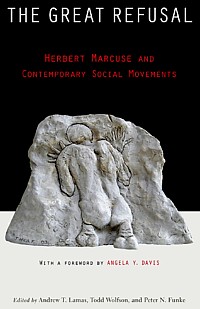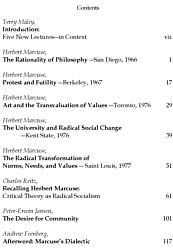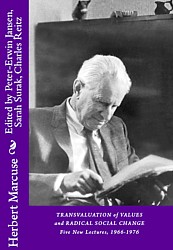2012
Announcements (back to top)
-
Feb. 16, 2012:
- Feb. 24, 2012: A sampling of some recent citations in the news (the first not-so-recent):
- Galleycat publishing blog, July 25, 2011, "Norway Killer Targeted Writers & Lit Professors in Manifesto" about Anders Behring Breivik, who murdered 8+69 people on July 22. Brevik's compendium of texts, titled 2083 – A European Declaration of Independence, cites Herbert in several places--search this 1518 page pdf to find them. It is pretty much standard Haters' fare: advocating political correctness, women's liberation, multiculturalism. For excerpts, see the Haters' page on this site.
- "A blood-spattered trip through today's lamentable lingo" Alexander Cockburn's Feb. 10 column in The Week uses Herbert as a lead-in: "Back in the 1960s, Herbert Marcuse pointed out in one of his books that the Pentagon had given up on verbs. The dialect known as Pentagonese consisted of clotted groups of nouns, marching along in groups of three or four. Verbs, which connected nouns in purposive thrust, were regarded as unreliable and probably subversive. They talked too much, gave too much away."
- Counterpunch, Feb. 10-12, 2012 "The Sixties: From Attica to the Fugs Younger Than That Now" by Ron Jacobs cites Eros & Civ: "One could argue that, unlike the sexism of today’s media, which bases itself on the complete commodification of the body while also putting a price tag on the emotion of love, it can be argued that the sexism of the Beats and hippies was a genuine attempt to create a world of Eros referred to in Herbert Marcuse’s classic text Eros and Civilization which visualized a society 'based on a fundamentally different experience of being, a fundamentally different relation between man and nature, and fundamentally different existential relations.'"
- American Catholic, Feb. 19, 2012 A.D.[sic!] "In the Birth Control Controversy, the Mocking of Conservative Religious Women by Militant Secularists Will Soon Backfire" by Dave Hartline. This is one for the Haters' page: "Families that adhere to the clinically proven facts of Natural Family Planning are treated as if they are some sort of religious nuts. Militant secularists in the corridors of power (Legislative and Fourth Estate) have even thrown out their favorite term “sexually repressed.” Now this term is so widely repeated in our popular culture, perhaps we should examine where it came from. Herbert Marcuse (1898-1979) of the infamous Marxist “Frankfurt School” came up with the term. Marcuse left pre-World War II Germany and taught at Columbia. Marcuse believed in free love and surmised that the more narcissistic society was with regard to sexual relations, the better the world would become. Before his death, he claimed his prized student was 1960s militant radical Angela Davis. Marcuse was way out in left field in his day and yet the militant secularists in our pop culture have made him seem as mainstream as Dr. Phil. When societies turn away from religion they embrace the crazies like Marcuse; sadly something has to fill the vacuum and it is usually the ideas which come from the half baked among us that do so."
- April 6, 2013: another delayed addition to the Books About page:
- 2011: Charles Reitz and Stephen Spartan, "Critical Work and Radical Pedagogy: Recalling Herbert Marcuse," 44pages; paper presented at the 2011 Critical Refusals conference of the International Herbert Marcuse Society. (pdf for on-screen; formatted for printing)
Reitz wrote in Oct. 2011: "This is a discussion document that can also be seen as supporting the Occupy Wall Street movement through critical analysis and by invoking some of Herbert Marcuse's most radical statements and ideas."
- Apr. 23, 2013:
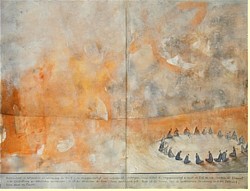 A new art book with quotations from Herbert's works was published in January: A new art book with quotations from Herbert's works was published in January:
- Herbert Marcuse. Versprechen, dass es anders sein kann. Promise that it can be different; paintings: Antje Wichtrey, afterword by Peter-Erwin Jansen. Bilingual reprint of the one-of-a-kind art book by Antje Wichtrey about Hebert Marcuse. Edition Boot, Granada·Frankfurt, 2013, € 25 / $ 30.
- The book can be purchased by contacting Peter-Erwin Jansen via email: petererwinjansen(a)aol.com.
- You can see four of the 15 double page spreads at Anthe Wichtrey's website.
- The quotation text in the sample image above reads:
"Rationality is indeed an essential aspect of art: making present (re-present) of that which is depressed, hidden, distorted - not as end in itself but as elements in the creation of the aesthetic universe: the universe of form. For it still holds true: form is the triumph over the destructive disorder and order, the banning of fear."
- July 5, 2013: In the month of the 115th anniversary of Herbert's birth there's a lot going on!
- His family and numerous scholars are exploring institutions in the US where an archive and study center for secondary materials about Herbert and Critical Theory might be established. In addition to the conference in November in Lexington (see below), after a chance discovery of the manuscript to One-Dimensional Man in a box of donated manuscripts at Brandeis, Brandeis is thinking of organizing a conference about Herbert. And one may be in the works at Cornell as well. Stay tuned.
- UCSD's library has many materials relating to Herbert in its special collections, for instance:
"University of California, San Diego, Office of the Chancellor (McGill, 1968-1970), files concerning Herbert Marcuse, Archives 941 Rec, Mandeville Department of Special Collections." (referenced in note 5 of Winter 1991 edition of the San Diego History Quarterly).
- July 29, 2013: new publication on Books About page: Raffaele Laudani (ed.), Secret Reports on
 Nazi Germany: The Frankfurt School Contribution to the War Effort Franz Neumann, Herbert Marcuse & Otto Kirchheimer, foreword by Raymond Geuss (Princeton University Press, 2013), 704 pages. (PUP website with TOC & pdf of introduction; $40 at amazon.com) Nazi Germany: The Frankfurt School Contribution to the War Effort Franz Neumann, Herbert Marcuse & Otto Kirchheimer, foreword by Raymond Geuss (Princeton University Press, 2013), 704 pages. (PUP website with TOC & pdf of introduction; $40 at amazon.com)
- Publisher's blurb: " During the Second World War, three prominent members of the Frankfurt School--Franz Neumann, Herbert Marcuse, and Otto Kirchheimer--worked as intelligence analysts for the Office of Strategic Services, the wartime forerunner of the CIA. This book brings together their most important intelligence reports on Nazi Germany, most of them published here for the first time."
- Kevin B. Anderson added to the Scholars' page.
- July 18, 2013: Interested in what Herbert was doing before he went to Freiburg to study with Heidegger? Here a 74-page pdf scan of his 1925 Schiller-Bibliographie: unter Benutzung der
Trömelschen Schiller-Bibliothek (1865) (Berlin: Martin Fraenkel,
1925), 137 pages.
(added to publications page)
[link fixed 8/19/13]
- Cited in Douglas Kellner, Herbert Marcuse and the Crisis of Marxism (1984), p. 385n54: "Marcuse expressed his evaluation of the Schiller bibliography to me in an interview on 26 March 1978."
- Aug. 11, 2012: From Martin Schulz, Stuttgart, via this page's guestbook, a 2:57 min. YouTube clip showing the arrival of Herbert's ashes at the Berlin cemetery in July 2003 (uploaded Dec. 2011; 64 views on 8/17/2012). The Cadillac hearse, by the way, was used for Marlene Dietrich and Benno Ohnesorg, and this was its last trip before being put in a museum.
- August 17, 2012: Robespierre de Oliveira is planning a Marcuse conference in Brazil in 2015. He has put a couple of his relevant publications on the web:
- "A teoria crítica como teoria da mudança social: o marxismo de Marcuse" ('Critical Theory as Theory of Social Change: The Marxism of Marcuse'), in: Marxism and Human Sciences (2011), pp. 59-70 (need to scroll down).
- "Crítica Cultural e Sociedade Unidimensional" ('Culture Critique and One-dimensional Society'), in: Arte e Filosofia 11(2011?), 158-169. (12 page pdf)
Abstract: The cultural critique of “Frankfurt School” is not summed up in the cultural or artistic question, nor can it be considered as “pessimist” or “elitist”. Cultural critique concerns the critique of culture as much as of society, in the same way Marx showed the relation between material production and spiritual reproduction of society. In this way, Benjamin developed his criticism of cinema, Adorno coined an expression “culture industry,” and Marcuse “repressive de-sublimation”. Benjamin noted the effects on experience by new technologies of cultural reproduction. Adorno pointed out the regression of hearing in the phenomenon of music distribution, which could be extended to the regression of the senses. Marcuse also developed the “loss” with the concept of “repressive de-sublimation” pointing to the one-dimensional society. The changes in contemporary society show the limits of Frankfurt School cultural criticism, but at the same time show its relevance
- Aug. 25, 2012: In December 1971 Herbert requested a conversation with Israeli Minister of Defense Moshe Dayan. In the Spring 2012 issue of Telos Zvi Tauber published an article about the meeting and a translation of the minutes of the meeting. These have been added to the Interviews section of the Sound and Video page (although they are print renditions), as well as to the 2012 section of the Books About page.
- August 31, 2013:
 I'm posting a number of new items that I've become aware of: I'm posting a number of new items that I've become aware of:
- The Nov. 7-9 Int'l Herbert Marcuse Society Conference is approaching, and the poster has been released. Here is a 6x9" pdf for printing if you want to post this.
- Richard V. Kahn, Critical Pedagogy, Ecoliteracy, and Planetary Crisis: The Ecopedagogy Movement
 (New York: Peter Lang, 2010) has extensive discussions of Herbert's work over 36 mentions in the book (according to a google books search). Here's a sample: (New York: Peter Lang, 2010) has extensive discussions of Herbert's work over 36 mentions in the book (according to a google books search). Here's a sample:
p. 22: "Recently, Latin American theorists of ecopedagogy have begun to connect their work to the critical theory of Herbert Marcuse (Magelhaes, 2004; Delgado, 2005) ... . As recent critical readers on Marcuse assert (Kellner, Lewis, Pierce & Cho, 2008; Abromeit & Cobb, 2004), ecological politics were an important aspect of Marcuse's revolutionary critique, and he should be considered a central theorist of the relationship between advanced capitalist society and the manifestation of ecological crisis." ($25/35 & searchable on amazon)
- An essay by a German historian now at UC San Diego, offering a 'contemporary reading' of one of Herbert's most famous--and most vilified by the right--essays, Repressive Tolerance:
Frank Biess, "Gewalt der Toleranz, Toleranz der Gewalt: Herbert Marcuse: Repressive Toleranz (1965)," in: Gewalt und Gesellschaft: Klassiker modernen Denkens neu gelesen: Bernd Weisbrod zum 65. Gebutstag (Wallstein, 2011), 285-293. (5 page pdf).
The title translates as 'The Violence of Tolerance, the Tolerance of Violence."
- Charles Reitz (ed.),
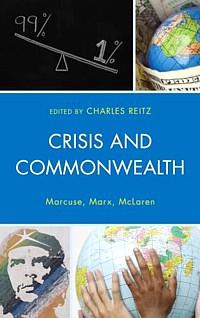 Crisis and Commonwealth: Marcuse, Marx, McLaren (Lexington Books, 2013), 332 pages. ($95 at amazon; flyer for 20% discount) Crisis and Commonwealth: Marcuse, Marx, McLaren (Lexington Books, 2013), 332 pages. ($95 at amazon; flyer for 20% discount)
This book "advances Marcuse scholarship by presenting four hitherto untranslated and unpublished manuscripts by Herbert Marcuse from the Frankfurt University Archive on themes of economic value theory, socialism, and humanism. Contributors to this edited collection, notably Peter Marcuse, Henry Giroux, Peter McLaren, Zvi Tauber, Arnold L. Farr and editor, Charles Reitz, are deeply engaged with the foundational theories of Marcuse and Marx with regard to a future of freedom, equality, and justice. Douglas Dowd furnishes the critical historical context with regard to U.S. foreign and domestic policy, particularly its features of economic imperialism and militarism. Reitz draws these elements together to show that the writings by Herbert Marcuse and these formidable authors can ably assist a global movement toward intercultural commonwealth. "
- A forthcoming collection of seminal Frankfurt School writings will include 4 essays by Herbert:

Ruth Groff (ed.), Subject and Object Frankfurt School Writings on Epistemology, Ontology and Method (Bloomsbury, March 2014)(publisher's book page), namely:
* Epistomology: “A Note on Dialectic” (8pp.)[1930 essay or 1941 in Reason & Revolution]
* Ontology: “The Concept of Essence” (45pp.) [1936 essay, translated in Negations, 1968]
* Method: “Critical Theory and Philosophy” (25pp.)[1937 essay, translated in Negations, 1968]
* “Karl Popper and the Problem of Historical Laws” (17pp.) [1959 essay, republished 1972]
- November 7-9, 2013:
 FIFTH BIENNIAL CONFERENCE of the International Herbert Marcuse Society at the University of Kentucky, Lexington. For information contact Professor Arnold L. Farr, Department of Philosophy, [email protected], and see the International Herbert Marcuse Society website. FIFTH BIENNIAL CONFERENCE of the International Herbert Marcuse Society at the University of Kentucky, Lexington. For information contact Professor Arnold L. Farr, Department of Philosophy, [email protected], and see the International Herbert Marcuse Society website.
- The Call for Papers (3 page pdf) was released in April--abstracts are due July 1, 2013.
- The conference theme is: "Emancipation, New Sensibility, and the Challenge of a New Era: Theory, Practice, and Pedagogy."
- Sept. 23, 2013: "But what are we to make of a society in which liberation is defined as scarfing down a ham sandwich?" In a July 2013 blog post about a New York Times article about employees actually taking lunch breaks, Corey Robin writes: "Back in the 1960s, Herbert Marcuse coined a phrase in One-Dimensional Man for capitalism’s ability to use (and tame) an emancipated sexuality for the sake of advancing capitalism itself: repressive desublimation. The basic argument was that the fantasy and idea of liberation could be mobilized to reproduce the very system that produced a need for liberation."
- Oct. 13, 2013: The program for the upcoming Int'l HM Society conference (Nov. 7-9 in Louisville) is now available. In the final panel, an archivist from Brandeis university will report on the discovery of the manuscript of One-Dimensional Man.
Two articles have recently been published about it:
- Oct. 25, 2012: Trying to catch up on adding a few new things:
- Dec. 4 , 2012: Herbert and Heidegger
- I came across this reference on the German Heidegger Wikipedia page:
Frithjof Rodi (Hrsg.): Martin Heidegger, Wilhelm Diltheys Forschungsarbeit und der gegenwärtige Kampf um eine historische Weltanschauung. 10 Vorträge, gehalten in Kassel vom 16. bis 21. April 1925. Maschinenschriftliche Abschrift von Herbert Marcuse nach einer Nachschrift von Walter Bröcker. In: Dilthey-Jahrbuch für Philosophie und Geschichte der Geisteswissenschaften Band 8 / 1992-93, S. 143 bis177.
Thus at a later time Herbert transcribed lectures Heidegger gave about Dilthey in 1925.
The Heidegger texts are available on google books (minus 8 pages or so). The Nachwort notes that Walter Bröcker (another Heidegger student) made the original stenographic notes and then transcribed them longhand, from which Herbert created the 31 page typescript, which is preserved with Herbert's papers in Frankfurt. It cites the following:
- Thomas Regehly, "Übersicht über die 'Heideggeriana' im Herbert-Marcuse-Archive der Stadt- und Universitätsbibliothek in Frankfurt am Main," in: Heidegger Studies 7(1991), 179-209. (also added to my Herbert-Heidegger page, at the bottom)
- Mahon O’Brien, "Re-assessing the ‘Affair’: The Heidegger Controversy Revisited ," in: The Social Science Journal 47 (2010), 1–20 (author's copy).
- Dec. 29, 2012 additions to Booksabout and Courses pages, plus some random things:
- Bob Samuels' Dec. 12, 2012 blog: "The One-Dimensional University: The Destructive Marriage of Technology and Administration." Bob is a writing instructor at UCLA, union organizer, and tireless advocate for implementing and improving universal undergraduate instruction.
- Luis Diego Fernandez's Sept. 8, 2012 article in N: Revista di Cultura: ' El rescate de un hedonismo libertario: La reedición de tres obras clave de Herbert Marcuse expone el pensamiento de uno de los portavoces del “freudomarxismo”.'
[The rescue of a libertarian hedonism: The reissue of three books on Herbert Marcuse's thought exposes a spokesman of "Freudian Marxism"]
- The "Philosophy Documentation Center" at pdcnet.org has 936 documents in a search on "marcuse"--mostly reviews of his works, and reviews of works about his works.
For example, this 1970 summary of Negations in The Review of Metaphysics.
|


 From
January 29, 2002 to March 4, 2002 visitors were asked to comment on
appropriate resting places for Herbert Marcuse's recently rediscovered
ashes (click on
From
January 29, 2002 to March 4, 2002 visitors were asked to comment on
appropriate resting places for Herbert Marcuse's recently rediscovered
ashes (click on  appropriate,
and on possible quotations by Herbert that could serve as an epitaph
(please enter them into the
appropriate,
and on possible quotations by Herbert that could serve as an epitaph
(please enter them into the 


 July
4, 2003: Prior to the burial there will be a conference in the Audimax
of the FU Berlin, on Thursday, July 17,
2003, 14h-19h. The public is invited. There will be
presentations and discussions by me (Harold Marcuse), Angela Davis,
Axel Honneth, Hartmut Häußermann, Ulf Kadritzke, Wolfgang
Lefévre, Eberhard Lämmert, Peter-Erwin Jansen, Frieder Otto
Wolf and Detlef Claussen. Click on the image at left for a large version
of the poster. [note July 29, 2003: there are several
articles and a long interview in ND with Angela Davis on the
July
4, 2003: Prior to the burial there will be a conference in the Audimax
of the FU Berlin, on Thursday, July 17,
2003, 14h-19h. The public is invited. There will be
presentations and discussions by me (Harold Marcuse), Angela Davis,
Axel Honneth, Hartmut Häußermann, Ulf Kadritzke, Wolfgang
Lefévre, Eberhard Lämmert, Peter-Erwin Jansen, Frieder Otto
Wolf and Detlef Claussen. Click on the image at left for a large version
of the poster. [note July 29, 2003: there are several
articles and a long interview in ND with Angela Davis on the 
 Aug.
5, 2003: Table of contents and biographical essay by Peter
Marcuse added from a forthcoming publication: Herbert Marcuse: A
Critical Reader (
Aug.
5, 2003: Table of contents and biographical essay by Peter
Marcuse added from a forthcoming publication: Herbert Marcuse: A
Critical Reader (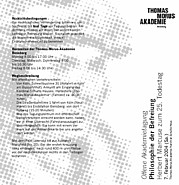

 April
10, 2004: added: link to
April
10, 2004: added: link to 





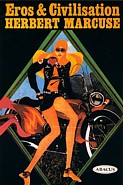
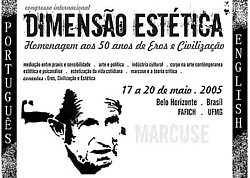

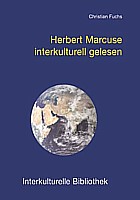
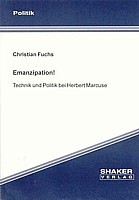 Two
new books by Christian Fuchs added to
Two
new books by Christian Fuchs added to  :
:
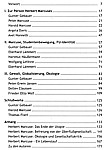
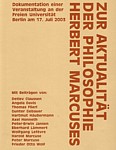
 :
A new and a forthcoming publication:
:
A new and a forthcoming publication:

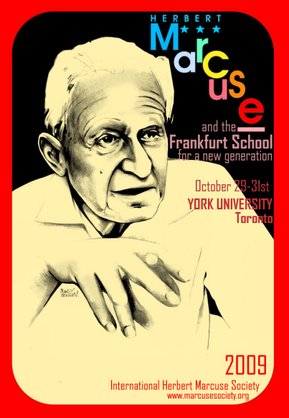 The
International Herbert Marcuse Society website,
The
International Herbert Marcuse Society website, 
 : Last October vol. 6 of Herbert's unpublished
papers was published in Germany: Oekologie und Gesellschaftskritik. It contains
11 works from 2 different periods: In 1932-34 Herbert's confrontation with
Heidegger's & Jaspers' philosophy, and some 1965-75 writing about theories
of society. The papers were edited by Peter-Erwin Jansen and introduced by
Iring Fetscher.
: Last October vol. 6 of Herbert's unpublished
papers was published in Germany: Oekologie und Gesellschaftskritik. It contains
11 works from 2 different periods: In 1932-34 Herbert's confrontation with
Heidegger's & Jaspers' philosophy, and some 1965-75 writing about theories
of society. The papers were edited by Peter-Erwin Jansen and introduced by
Iring Fetscher.
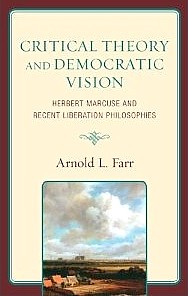


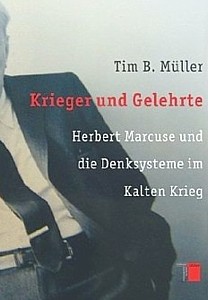
 Vol. 5 of Herbert's Collected Papers: Douglas Kellner and Clayton Pierce (eds.), Philosophy, Psychoanalysis and Emancipation (Routledge, 2011) is now available. (
Vol. 5 of Herbert's Collected Papers: Douglas Kellner and Clayton Pierce (eds.), Philosophy, Psychoanalysis and Emancipation (Routledge, 2011) is now available. (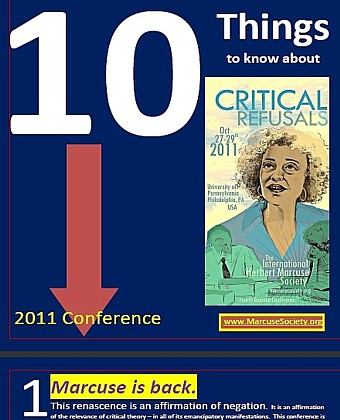









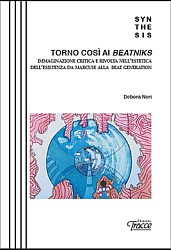

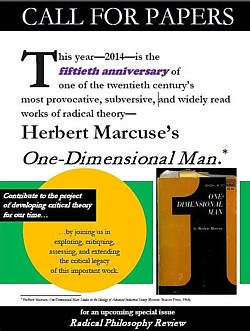
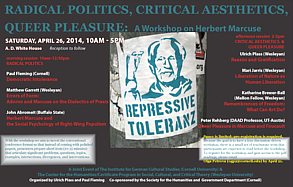




 With two One-Dimensional Man conferences (in NY and Boston) just over, another very interesting ODM event has begun: the performance of a German theater play actualizing Herbert's radical critique of society.
With two One-Dimensional Man conferences (in NY and Boston) just over, another very interesting ODM event has begun: the performance of a German theater play actualizing Herbert's radical critique of society. 
 Re-publication of 1967 "Liberation from the Affluent Society" lecture, in: David Cooper (ed.), The Dialectics of Liberation (Verso, June 2015;
Re-publication of 1967 "Liberation from the Affluent Society" lecture, in: David Cooper (ed.), The Dialectics of Liberation (Verso, June 2015; 
